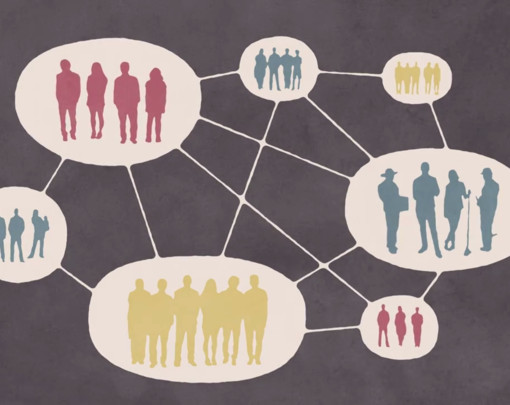There is much necessary work being done to confront a myriad of individual problems—a fight against an exploitative employer here, concerned residents working against a counterproductive local policy there, still elsewhere a challenge to long-standing bias and discrimination. But when we zoom out to look at the larger situation, we see that these problems are often linked together, produced by the same set of underlying dynamics and drivers. When we talk about “changing the system,” we mean going beyond work on all those pressing individual problems to also tackle the bigger conundrum of figuring out how all our institutional structures and the self-reinforcing deep patterns in our economic and political system work together to produce them, and then figuring out how we can begin to move to alter these underlying systemic drivers. Doing so strategically requires not just a sense of what is wrong, but an outline of what we want instead.
The Pluralist Commonwealth
For example, our co-chair Gar Alperovitz has sketched an alternative institutional design he calls “the pluralist commonwealth.” In the short video and free online book below, you can see how this version of a next system works to alter the outcomes produced by concentrated corporate ownership by democratizing the economy. The set of new institutions he outlines builds towards a new dynamic, one which centers community over profit, cooperation over competition, and planning over unchecked growth.
New Systems: Possibilities and Proposals
Getting clarity about the systemic solutions we want means taking seriously the various advantages and tradeoffs in different designs for possible futures, and using this understanding to ground the work we do. Our co-chair Gus Speth, following this insight, has invited many of the leading thinkers and designers of comprehensive systemic alternatives to contribute papers to our ongoing “New Systems” series, which you can read below:



